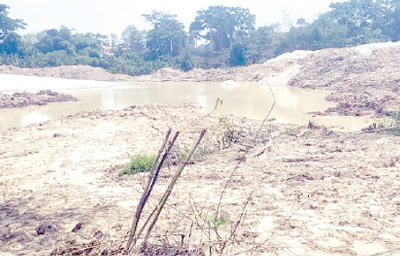RIGHT from the inception of the Fourth Republic, the place of state governors in the sociopolitical development of Nigeria cannot be overlooked. The governors continue to dictate the pace of politics and governance in the country. Against that background, it has become customary for state governors to collaborate and maintain cordial relationship with federal cabinet ministers appointed from their states. This tradition transcends party differences and is rooted in the belief that such cooperation is necessary to strengthen the state’s position at the federal level. Consequently, the common but implicit expectation is that the state governor, as the political leader, should rise above personal or political rivalries to work collaboratively with the minister from his state, to whom the president entrusts responsibility as his representative at the federal cabinet. Unfortunately, this expected synergy has not been the case in Zamfara State, where Governor Dauda Lawal and his party, the Peoples Democratic Party (PDP), seem to have made it their mission to undermine the Minister of State for Defence, Dr. Bello Mohammed Matawalle. Ever since Matawalle’s appointment, the hostility from the PDP in Zamfara has been glaring. A cursory content review of newspaper headlines would reveal a barrage of orchestrated attacks, all aimed at painting the minister in a negative light. What could be Matawalle’s perceived crime? Simple.
Securing a ministerial appointment in President Tinubu’s administration on his right and remaining a formidable political figure in the Northwest. The PDP’s criticism escalated when he caught wind of rumours of a cabinet reshuffle by President Tinubu. Fortunately, these efforts proved futile and the Minister of State was retained to continue his good works. And, not only did President Tinubu retain Matawalle in his cabinet, he let him keep his role as Minister of State for defense, a decision that has been hailed as a resounding vote of confidence in the minister’s capabilities, competence and loyalty. The president’s decision to retain Matawalle underscores his pivotal role, not just in the North-West, but also across Nigeria. Matawalle has demonstrated exceptional capacity in combating banditry, a scourge that has plagued Zamfara and the wider northwestern region for years.
As a former governor of Zamfara State, Matawalle’s appointment as Minister of State for Defence reflects the federal government’s trust in his ability to address this critical issue and he has repaid that confidence with the felling of bandit kingpins, including Halilu Sububu. Beyond his achievements in security, Matawalle has also emerged as a staunch defender of the Tinubu administration. His swift and fierce rebuttal of former Minister Rotimi Amaechi’s disparaging remarks about President Tinubu is a testament to his unwavering loyalty. Matawalle’s defense of the president was not only a political statement, but also an affirmation of his alignment with the administration’s vision for a better Nigeria. While Matawalle continues to focus on his responsibilities at the federal level, Governor Dauda appears to be distracted by his obsession with undermining the minister. This begs the question: when will he commence his tenure as governor in earnest? As a state grappling with existential threats, including insecurity, poverty, and underdevelopment, Zamfara deserves better. The people of the state elected Dauda with the hope that he would tackle these challenges head-on.

Instead, his administration seems fixated on shadowboxing with Matawalle, a minister stationed in faraway Abuja. This misallocation of priorities not only distracts from governance, but also raises concerns about the governor’s commitment to addressing the state’s pressing issues. Rather than antagonising Matawalle, one expected Lawal and his administration to recognise the strategic advantage of having a Zamfara indigene as a trusted member of the president’s cabinet. Matawalle’s proximity to the corridors of federal power offers an opportunity for the state to attract federal projects, security interventions, and other developmental initiatives. By fostering a mutually beneficial relationship, Dauda could leverage Matawalle’s position to secure great dividends for Zamfara, thereby amplifying his own achievements as governor. This approach is not unprecedented. Across Nigeria, governors have historically worked with ministers from their states, regardless of political differences, to advance their states’ interests. It is a pragmatic strategy that prioritises the people over personal grievances. Zamfara deserves no less.
The people of Zamfara are undoubtedly watching and wondering when their governor will redirect his energy toward governance and who will blame them. The state’s challenges are too severe to be sidelined by petty political rivalries. Insecurity continues to threaten livelihoods, while infrastructure deficits and unemployment remain significant hurdles to development. These are the issues that should occupy Dauda’s attention. Governor Dauda must also consider the long-term implications of his actions. Political vendetta does not build legacies; impactful governance does. By focusing on his mandate and collaborating with all stakeholders, including Matawalle, he can leave behind a legacy of progress and unity. It is time to bring on board a model that prioritises the interests of the people of Zamfara over and above any political differences. The state stands to gain immensely from a harmonious working relationship between its governor and minister. With Matawalle as a trusted ally of the president, Zamfara is uniquely positioned to enjoy federal patronage and resources.
The question now is whether Governor Dauda will rise to the occasion or continue down a path of political distraction.. The clock is ticking, and the people are waiting. In Zamfara, it should be governance o’clock!
- Musa writes in from Kaduna, Kaduna State.
Read Also: Navy commissions Niger primary school








